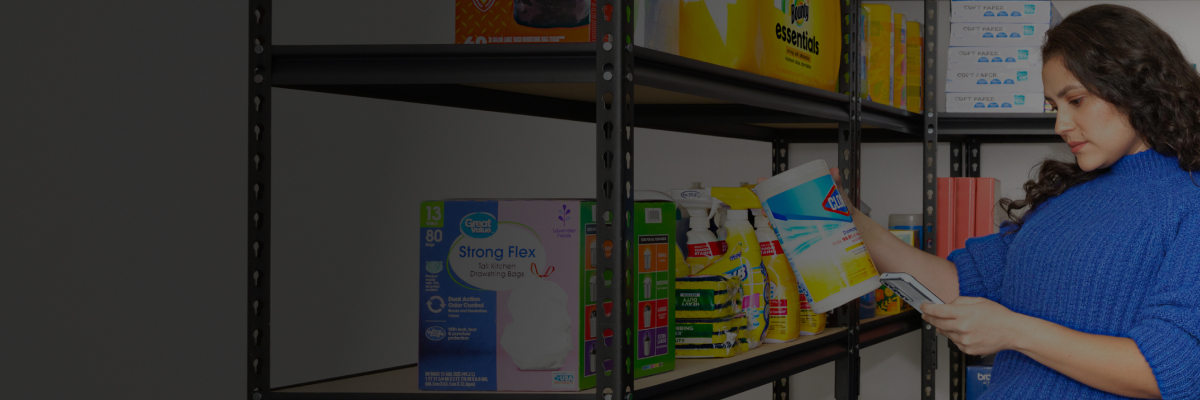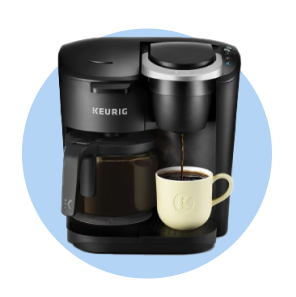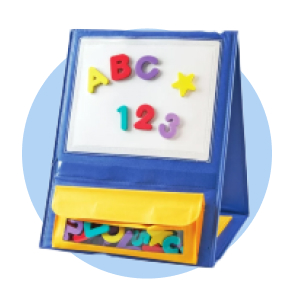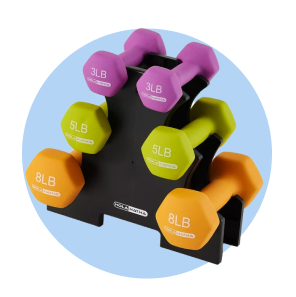
Small Business Security Systems: 7 Factors to Consider Before Investing
Budget, installation, maintenance & more
When it comes to small business security systems, there are thousands of options. Think about how many cameras, alarms and locks there are to choose from, and how many different ways you could combine them. Then remember that you could also outsource the whole project to a third party—and there are more than 11,000 security companies in the United States. The sheer variety of security solutions on the market could be enough to induce analysis paralysis.
However, choosing the right solution doesn’t have to be an impossible challenge. In fact, you can narrow down your options considerably if you take some time to think through which features you need, how much you want to spend and what kind of resources you already have. We’ve highlighted seven factors to consider so that you can find the best small business security system for your organization.

Keep your business & employees safe
Generally speaking, a security system for small business is anything that protects your company’s assets from damage or theft. A typical small business security systems might include fire alarms, access logs, ID card scanners, video recording, intercoms and/or motion detectors. Not every company will need every one of these tools. Similarly, some companies may need multiple locks, cameras or alarms, depending on how many entrance points or sensitive areas they need to secure.
Budget
For a rough estimate of how much of your budget should be dedicated to security, determine how valuable your resources are, how likely they are to come under threat and how much you can realistically afford to safeguard them. Your insurance premiums might help serve as a rough guideline here. One estimate suggests that a small business should spend about $1,400 on physical security per year, but in practice, this number could be much lower or higher.
Business location & size
One key factor in a security system investment will be your company’s size. This refers to both a location’s physical size as well as the number of locations your company has. Your system’s complexity will depend on what kind of service your business provides.
A large retail store, with valuable merchandise and multiple entrances and exits, might need to spend tens of thousands of dollars on a comprehensive third-party security solution. On the other hand, a small storefront with no particularly valuable data or goods might do fine spending a few hundred dollars on a digital security camera. Multiple locations will need more hardware, as well as more human oversight. Consider whether you have the resources to monitor every location in-house, or whether a third-party vendor might serve you better.
Technology integration
Some small business security systems are more complex than others. For example, you could install a video camera that records directly to a hard drive and requires a specialized computer program to parse. Alternatively, you could look into wireless business security systems, which upload footage directly to the cloud and allow access via smartphone apps. In fact, many smart devices, from alarms to locks, offer app or web browser interfaces that let you monitor and control your security remotely. These devices aren’t necessarily more secure than their lower-tech counterparts, but they can be more convenient.
Monitoring options
When it comes to monitoring, you have two options: a professional third-party service, or an in-house employee.
As with many other security considerations, there’s no right or wrong answer here. Specialists at dedicated security organizations may be able to spot risks that aren’t obvious to the untrained eye. On the other hand, self-monitoring costs less, particularly if you can integrate it into an existing employee’s workflow. Learning your own organization’s security strengths and weaknesses may also allow you to develop better practices over time.
Video image quality
Small business video security systems vary considerably in terms of image quality. Some cameras offer 4K video with night vision capabilities and sophisticated zoom options. Others may capture basic, straightforward 480p video—provided the lighting conditions are ideal.
All other things being equal, higher image quality is a better investment. Remember, though, that this feature doesn’t come for free. Ultra-high definition (UHD) cameras are more expensive than their standard-definition (SD) or high-definition (HD) counterparts. High-quality videos also take up more storage space, either on a hard drive or in the cloud. If you need round-the-clock UHD video to monitor your business, you should be prepared to pay a premium for it. If you don’t, you may find SD or HD video to be a fair tradeoff.
Installation
Even the simplest small business security solutions require time and effort to set up. If you buy Internet of Things (IoT) devices from big-box stores, you can probably install them yourself and help your staff set up any associated smartphone or web applications. Doing so may be time-consuming, though, especially if you have to troubleshoot the software or reconfigure the hardware.
You could also buy your own gear and hire someone else to install it. This is convenient, as you and your staff don’t have to take time out of your schedules to perform tech setup. If something goes wrong later on, though, you may have to call an expert to fix any mistakes.
The other option is to simply entrust the entire purchasing, installation, maintenance and monitoring process to a third-party vendor. This can be expensive, but it means that an expert will perform your installation and remain on call anytime your tech malfunctions.
Ongoing maintenance
Every security system requires ongoing maintenance. Software requires updates, hardware degrades over time (especially if it’s outdoors) and businesses change their physical layouts. Before you invest in a small business security system, you should think about how you plan to maintain it over time.
Depending on your hardware setup, your existing staff may be able to perform maintenance. It’s easy enough for a store clerk to clean a security camera, for example, or for an IT manager to install a firmware update on a widely available smart lock.
However, more complex systems may require outside assistance. You might need a contractor with a special certification to reach a high, inaccessible security camera. If you rely on a third party for small business security services, you may have to wait for vital patches or updates.
These considerations are especially important as your business changes and grows. You might need to purchase more equipment or hire more staff as your company expands. If you rely on an outside vendor, you may have to pay higher subscription fees. You may also have to factor in more downtime, as bigger systems take more time to diagnose and repair.

Invest in security through Walmart Business
Small business security systems are indispensable, but they don’t need to be complicated—or prohibitively expensive. You can purchase security cameras, light bulbs, smart locks and memory cards through Walmart Business. When you sign up for a Walmart Business account, you’ll enjoy low prices on workplace gear, muti-user accounts with shared payment options and a full order history from both Walmart.com and physical Walmart stores.
If you already have a Walmart Business account, then consider upgrading to a Walmart Business+ membership. With it, you’ll get free shipping from Walmart.com with no order minimum,1 as well as free delivery from local Walmart stores with a $35 minimum.2 You can also earn 2% in Walmart Business rewards on orders of $250 or more.3 With all of these benefits, your organization could save more than $500 per year.4
Whatever security system you choose, you should take some time to consider your budget and your desired feature set. Then, you can find a solution that can keep your business safe for years to come.


Limited-time offer
Unlock your special promo code
Stay informed on Walmart Business news & get $20 off a $100 purchase!1
1Minimum order of $100. Promo code can be used one time & may not be combined with other offers. Offer not transferable & void where prohibited by law. Customer responsible for all applicable taxes. Offer expires 12/31/2025 at 11:59pm PT. Further restrictions apply. See terms at checkout for details. Promo code offers available in limited quantities. While supplies last.
1 Excludes most Marketplace items, freight and certain location surcharges.
2 Restrictions apply.
3 Rewards can only be used toward future purchases on Walmart Business. Additional terms apply.
4 Savings based on 1 free $35+ delivery order vs. $9.95 fee and 1 free shipping order under $35 vs. $6.99 fee biweekly, plus 2% Walmart Business Rewards on monthly order >$250 (average value of $400).
Exciting news awaits
Hear firsthand about new products, features & promotions.
By clicking submit, you agree to receive emails about Walmart Business and acknowledge you have read and agreed to our Terms of use and Privacy Policy.










